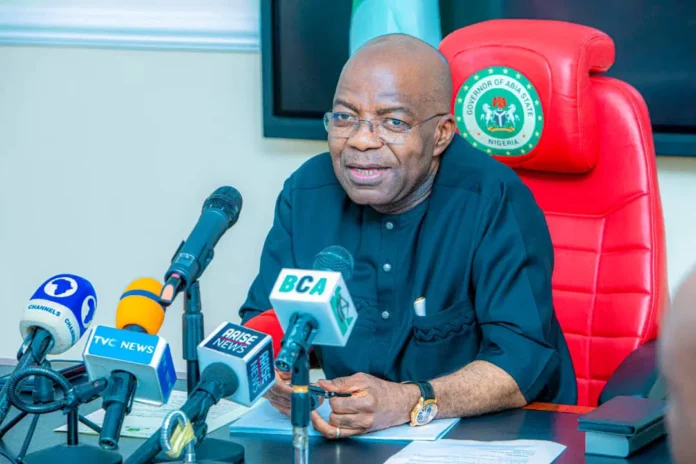The much-anticipated construction of the Abia State Airport, scheduled to begin on December 17, 2024, has hit a major roadblock.
The Nsulu communities in Isiala Ngwa North Local Government Area, where the airport is planned to be built, are vehemently opposing the proposed location.
These communities claim that the project will displace them and lead to the extinction of several agrarian villages.
The Abia State Government had announced the groundbreaking ceremony would be officiated by the Minister of Aviation and Aerospace Development, Festus Keyamo.
However, the local communities are protesting against the project, calling it a threat to their homes and livelihoods.
Engineer Ikechukwu Uche, a community leader from Umuezeukwu, shared their concerns. “We are not against the airport,” Uche said. “But the government’s insistence on this location is unacceptable. This land is our source of livelihood. To build here means taking our ancestral farmlands, displacing us, and essentially driving us to extinction.”
Uche added that communities like Umuezeukwu, Umuala, Umuezenta, and Umuosu, which are primarily agricultural, would be wiped out by the construction.
The communities’ frustration stems from what they describe as a lack of consultation by the state government. They say the government carried out surveys and mapped out the land without engaging them in any meaningful discussion.
“They came, mapped, surveyed, damaged our crops, and left without a single serious conversation or negotiation,” Uche explained.
The anger is further intensified by the fact that key details about the airport, such as the design, the land area, and the environmental impact assessment, have not been disclosed.
“The sheer scale of land appropriation raises questions about the true nature of this project – is it truly an airport, or simply a land-grabbing exercise?” Uche asked.
The local communities are also alarmed by the lack of transparency surrounding the project’s development. The government had announced the construction start date even before key details had been made public, further fuelling doubts and concerns.
“No compensation will ever be enough to assuage the collateral damage,” Uche said. “Our homes, our farms, our heritage will be lost.”
In response to the government’s planned project, the Nsulu communities are calling for intervention from Minister Keyamo. They are urging him to halt the project and reconsider the site.
“We ask Minister Keyamo to stand with us,” Uche said. “We do not want to be displaced. We are calling for a stop to this illegal land acquisition.”
The communities have also suggested that the government should use a different site that had been previously mapped out by the former administration, which they believe would not cause such damage to their land.
Despite the strong opposition from the Nsulu communities, the Abia State Government maintains that extensive consultations have taken place. Pastor Caleb Ajagba, the Chief of Staff to the Abia State Governor, claimed that the government had addressed concerns and secured widespread support from the communities.
Ajagba assured that the government would provide adequate compensation for those whose lands would be affected by the project and promised that the local livelihoods would be protected.
“The project is being carried out with the full support of the people,” Ajagba said. “We have taken all necessary steps to ensure the benefits of the airport reach every resident.”
The government also pointed to a partnership with the Federal Government, which was secured in July 2024, as evidence of the project’s viability. The government further cited the involvement of private sector players, such as Access Bank, as a key factor in ensuring the project’s success.
Furthermore, representatives from the Federal Airports Authority of Nigeria (FAAN), the Nigerian Meteorological Agency (NIMET), the Nigerian Civil Aviation Authority (NCAA), and the Nigerian Airspace Management Agency (NAMA) visited the proposed site, signalling official support for the project.
However, the disparity between the government’s assurances and the communities’ fears remains striking.
The situation has escalated tensions between the Abia State Government and the affected communities, casting a shadow over the December 17 groundbreaking ceremony.
The critical question now is whether a compromise can be reached or if the project will face significant opposition that could delay or derail it.
As the days count down to the scheduled start date, both the government and the Nsulu communities are digging in their heels.

